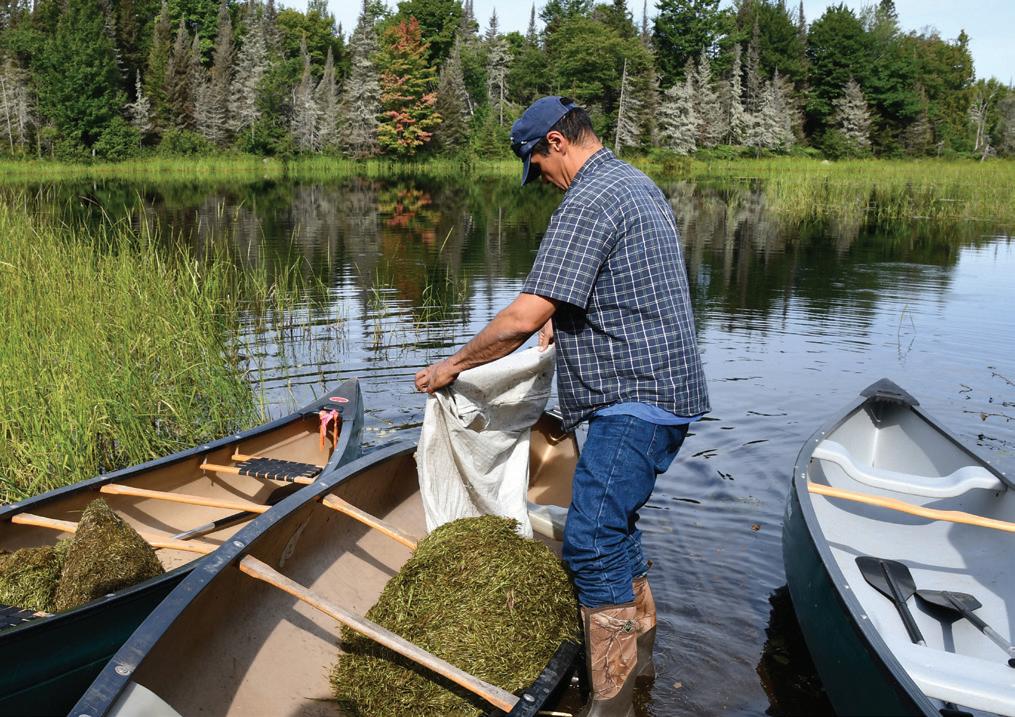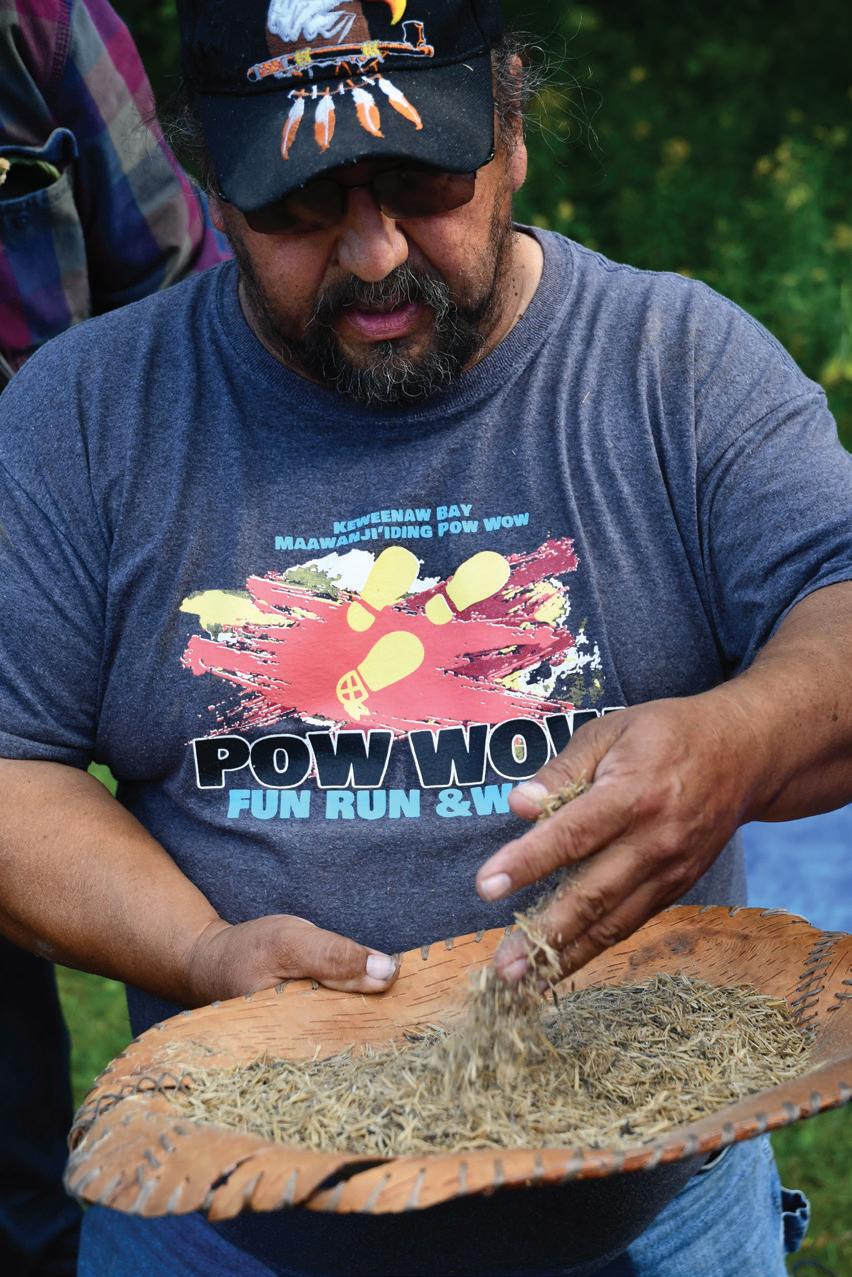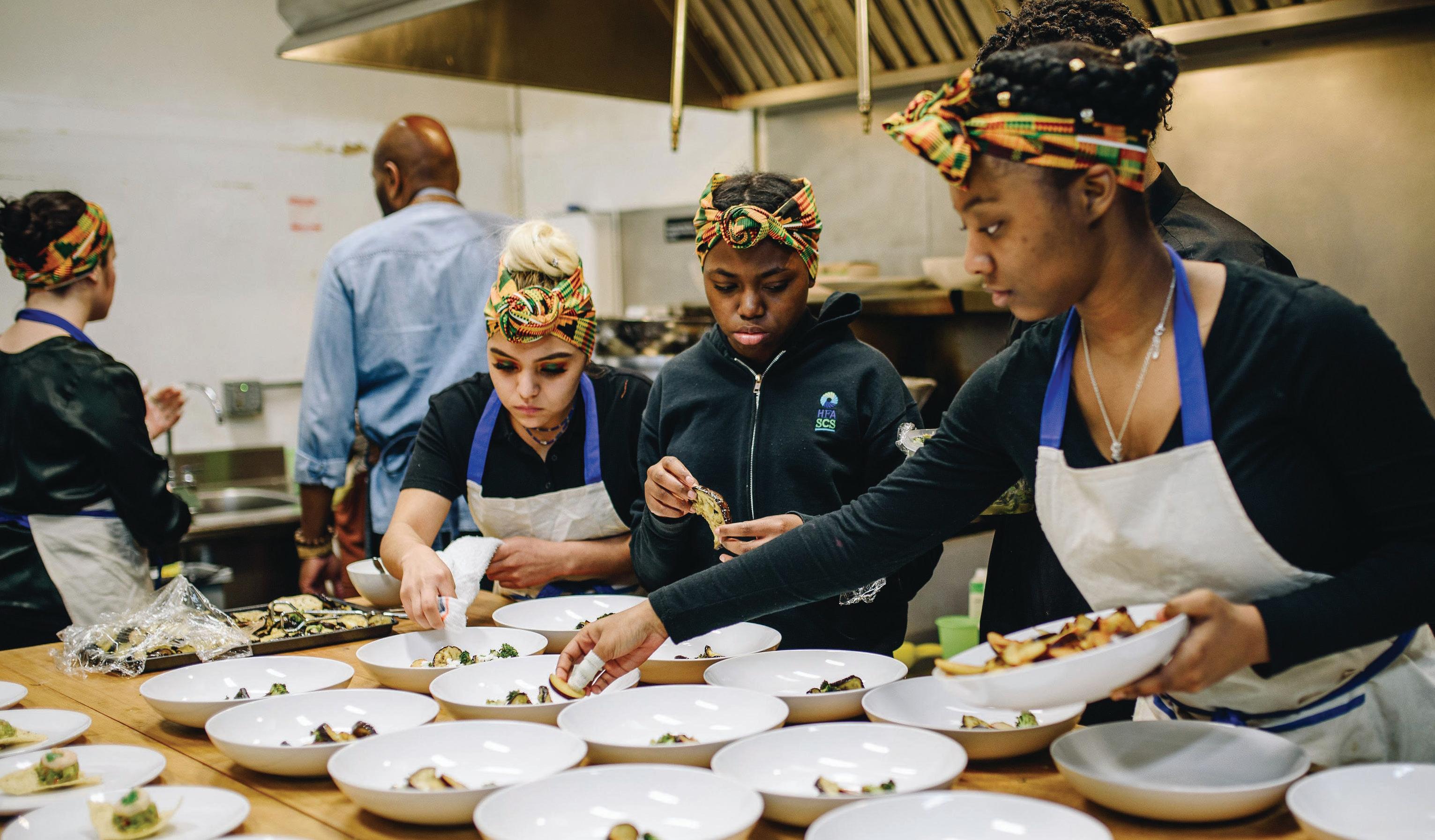
2 minute read
Good Food Culture
ALEX PALZEWICZ, UP Michigan Local Food Coordinator
Photos by Todd Marsee, Michigan Sea Grant

Harvesting manoomin (wild rice) in Upper Peninsula lakes.
“Good food culture does not infringe on the rights and responsibilities of others, all others, all beings, past, present and future and demonstrates respect for all while practicing gratitude for one's own food culture,” says Valoree Gagnon, Director of University-Indigenous Community Partnerships at Michigan Tech University’s Great Lakes Research Center. In the Upper Peninsula, Native American communities strive to maintain a relationship with their traditional foodways and support local food producers. Gagnon continues, “It’s the process of integrating food into identity and practice, rooted in webs of relationships.”
Manoomin, or wild rice, is deeply rooted in Anishinaabe culture. Uniting 12 tribes, the Michigan Wild Rice Initiative emphasizes the importance of manoomin within the community. Roger LaBine is a member of the Initiative and a Water Resource Technician for the Lac Vieux Desert Band of Lake Superior Band of Chippewa. He reflects on his annual traditions, “I believe that plants are a brother to me and all have a spirit, and when I don’t respect the manoomin, it can be taken from me. Everytime I go out and visit that bed, I offer that sign of respect and announce who I am and why I’m there. When I go out in the fall, the bed only gives me what I need and I only take what I need.” The labor intensive process of gathering and processing rice is done communally to ensure that everyone has enough.
In the eastern UP, the Jiibaakwaan Production Ordinance was recently adopted in the Bay Mills Indian Community (BMIC). The ordinance manages food safety around foods of cultural significance that are prepared in a traditionally safe manner and promotes economic development. Connie Watson, the Bemidji Area Leaders Acting for Change (BALAC) Project Coordinator for the Bay Mills Indian Community, believes this regulation will increase access to these foods. “The ultimate goal is to decrease diabetes, heart disease and obesity. It’s our hope with making our traditional and local foods more available it will be an easier path to better overall health.”
Together, Indigenous tribal members of the UP work towards a food system that celebrates their traditional foodways. Every bite of locally grown food comes from native lands, and a good local food movement not only respects other cultures, but learns from them, and more importantly, stands beside them. As Michigan continues to focus on a better food system, it also affects all aspects of local society. Gagnon concludes, “Food doesn't exist separately from the many dynamics of one's culture, the social, political, ecological, and so forth exists together.”

Roger LaBine, winnowing the manoomin.










